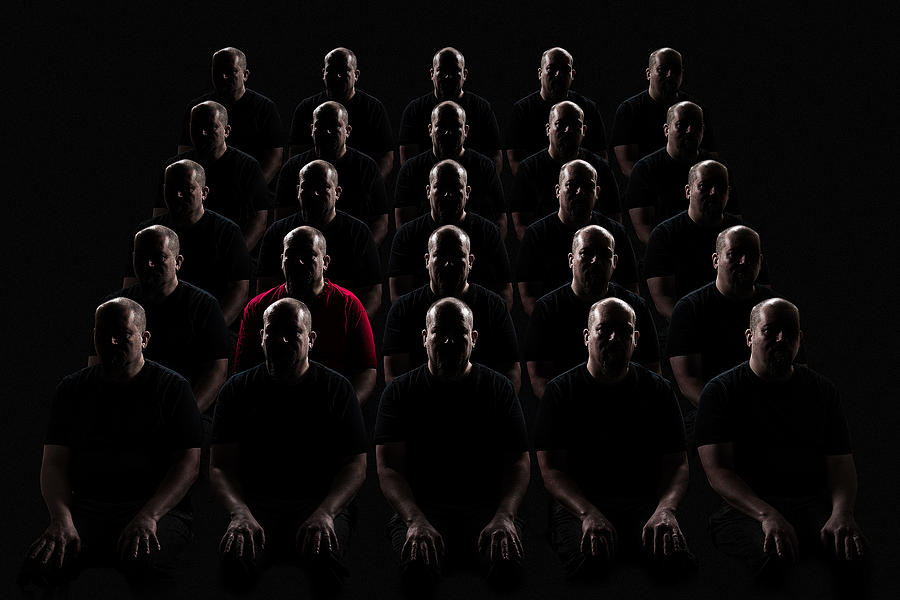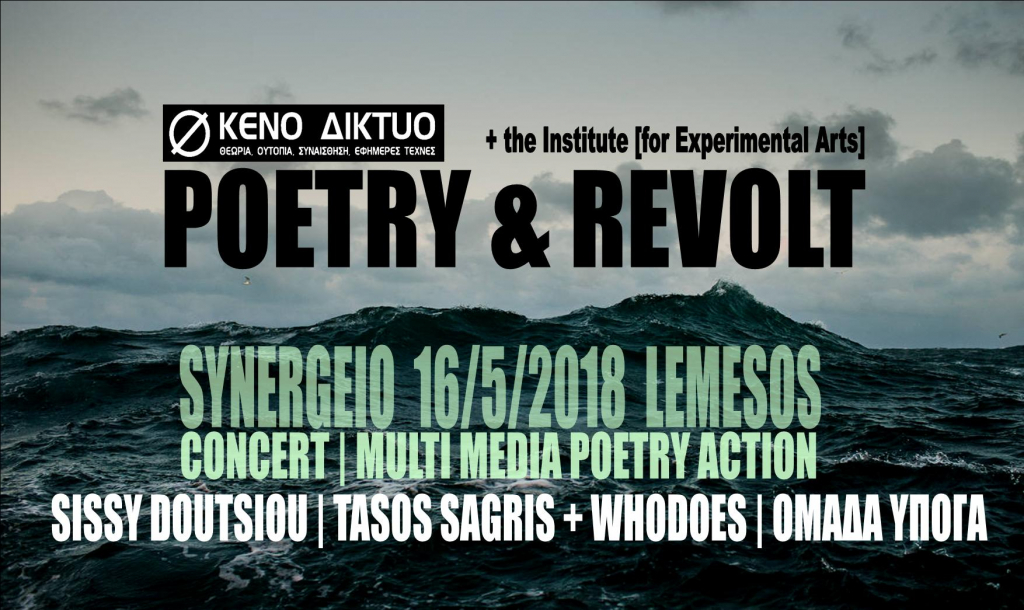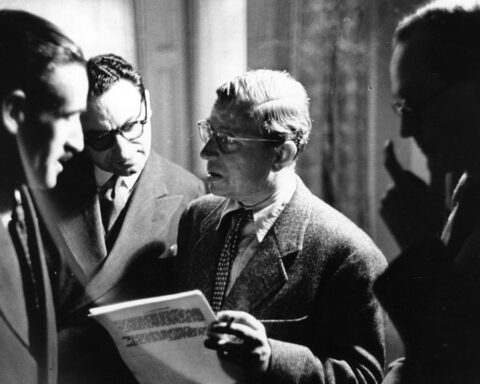[The Following article includes excerpts from the forthcoming book The Great Re-imagining: Spirituality in an Age of Apocalypse, available from Homebound Publications]
When was the last time you were alone? I mean really alone—not connected to the global monoculture through a smart phone or wifi. It is likely that it’s been a while, or at least that such moments have been infrequent. For most of us, something has happened very recently that has transformed our consciousness and literally reshaped the human brain. We will call it the Tech Revolution. We have entered the information age.
It is telling that the focus in this age is on information. It is not, as those who would suggest that human progress is always a straight line of improvement would expect, the age of wisdom. We seem no better equipped to process the information we have, no more capable of using information to live more meaningful and compassionate lives. In keeping with the ethos of consumerism, it is simply more. The values of the information age—Facebook and Google its chief evangelists—dictate that sharing more information is always better and that increased connectivity is always better.
In Defense of the Lonely Road
Before I explore the Tech Revolution more broadly, a personal perspective. It fills me with sadness to see faces lightened by phones rather than the lighting up the world with their presence. It is particularly sad to see this in the youth, who never have had a chance. They do not remember an unconnected time. Most have never had the experience of being alone. They sleep with televisions buzzing, phones under their pillows. They look at me, mystified, a forty-two-year old who chooses to live without a smart phone. But still, I am rarely disconnected. March from email to email, text to text. While my screen-time might be far less than most, I still feel the addicting pull of social media and the Internet in general, luring me away from the world, from my self, from community, with the seduction of information and facile connectivity.
I traveled a lot in the nineties. We were truly in the beginnings of the tech revolution then, but it had not yet taken full flight. Although it wasn’t long ago, it is astonishing how much has changed since then. No one had cell phones. Many didn’t use the Internet or have email. We couldn’t see the changes on the horizon. And it was possible, still, to find one’s way to a place where one could be truly alone, even if few people ever did.
But I did. I traveled to Africa, to beaches without tourists in South America, to wild deserts in the Middle East and to China before it really opened up. I found my way by talking to people, by trusting that the bus would take me to the right place, even without GPS. And although I found Internet cafes in many places, I lay down each night alone, contemplating the stars or the adventures I’d had. True adventure, like the stars for urban people, is almost gone. Lostness is almost gone.
The Tech Revolution and the Printing Press
To understand the impact of the tech revolution it would be useful to find a historical corollary. Literacy is perhaps the only cultural phenomenon that compares. Plato reported that Socrates warned against the dangers of the written word as opposed to the spoken.[1] For indigenous peoples, the writing down of sacred stories is often considered dangerous, for it concretizes the words. Stories lose their flexibility. The fundamental process of human language—the fluid and dynamic engagement of speaker and listener in a process—is lost. In Greek terms, this led to a movement away from poetic or mythic thinking and communicating to the logical—from mythos to logos.
Writing and reading requires abstract thinking. Good writing, however, allows us to enter into another world that involves the whole person. It is a mental act, an abstraction, which calls attention to embodied connections we have. And, of course, reading and writing has always happened with a book in the hand. Pages turned. Moreover, as a mental act of following a story, a narrative, or an argument from beginning to end, it allows for a level of attention that quiets the mind from all its myriad distractions.
Writing truly began to shift human consciousness with the invention of the printing press. It is no mere coincidence that this invention was contemporaneous with the Protestant Reformation. For all its benefits—and there are many—the printing press made it possible for a truly Modern religious movement to emerge in Europe. It was a movement based on the absolute isolation of the individual. Separate from Nature, from community, from the body, spirituality was reduced to a psychological process, a process that was mediated primarily through reading the Bible.
This could be viewed as the first revolution in the Information Age. It shaped consciousness in such a way that it emphasized the abstract over the embodied, and the linear logic of the written narrative over the symbolic and mythic meaning of the pre-Modern era. What is important to emphasize is that it did not, in spite of the abstract character of reading and writing, move us away from the many of the traditional narratives as the basic way that the human makes meaning. Nor did it move us away from mindfulness. The printing press, in its emphasis on the written word, brought with it benefits and problems, like all new technologies. While it did, in fact, move us away from a more embodied and less abstract form of consciousness, it also emphasized a particular type of mindfulness and opened it up to the masses. Now, anyone with access to a library could discover the world through a book. And they could do so with the focused, mindful attention that reading requires. While many have lauded the Internet as providing similar access to the masses, it also brings with it a new challenge, particularly as it relates to mindfulness.
Technology, Individualism, Capitalism, Pornography
The character of the Tech Revolution is such that it favors radical individualism. Each new technology does not so much give us greater access to greater things; rather, it allows us to experience those things individually. For instance, the VCR didn’t mean we had better movies, it merely meant we could watch the same movies alone. The Internet has increased this individual experience, and the smart phone has intensified this further.
This is worth unpacking a bit. First, it is impossible to miss that this radical individualism is connected to consumer capitalism. The Internet focuses on shopping and an enhanced, individualized form of advertising—to the point that, through social media, content and advertisement are difficult to separate. Second, individualized technologies have largely been produced because of the desire for pornography. Before VCRs, there wasn’t much demand to watch movies at home; but there was a demand, for obvious reasons, to watch pornography at home. The Internet’s growth has been similarly driven by the porn industry. These two interrelated concepts—pornography and consumerism—have come to dominate our mental space and our culture.
How Is the Internet Changing Us?
The Internet, just as it allows for the dissemination and processing of information to expand exponentially, also brings about shifts in human consciousness exponentially. To understand this transformation, one must recognize the plasticity of the human brain. Something more is happening than changed habits. The Internet is arranged in such a way that de-emphasizes thoughtful, focused attention. The screen, by its very design, encourages us to click and move. And the brain, shaped now at an early age by new technologies, begins to expect them. Social media is actually designed to create an addiction to such a lack of focus. Our brains have a chemical response when someone likes a Facebook post or follows us on Twitter. We feel good. We look for more. Of course, all these are two-dimensional, shallow responses. While the chemical reaction might not be so different from sharing food with a friend or a hug from a loved one, they are ephemeral by nature; there is no lasting connection, only the yearning for more. The Capitalist ethos of more is experienced now, socially.
All this is intensified by the technologies that give us immediate access to these platforms. The smartphone has become, for many, an extension of the human body. We feel we cannot live without it. We are connected every minute of every day, seeking, like the addict, another hit. What has been lost in this process is that we seem to have become more machine than human. The depth, the three-dimensional, textured experiences that make up a good life, which make us human, are lost. This loss has altered the human brain and is radically transforming human culture. There are many—perhaps most—who would describe this transformation as good. And there are indeed good things about it—access to information is a benefit, for example. But there are also many problems.
First, technology is something of a false prophet, a promise of a quick fix that never comes. And, in fact, it distracts us from the real, more difficult solutions. Recall the assessment of technology as the solution to climate change. Without a change in attitude about consumption—metanoia—new technologies alone lead only to more consumption. Moreover, access to more information does not give one the ability to discern what is useful or correct information, nor does it give one the wisdom to use the information sensibly. Human beings process information holistically, and we are experiencing the world less holistically with greater reliance on these technologies. Human beings process information through narratives, which require imagination, not merely information.
The addictive nature of our gadgets and of the Internet, particularly social media, leads to a profound loss of mindfulness. We are constantly connected and, oddly, disconnected. That is, we have lost the constant attention and presence in our cultural, communal and ecological context that gives us our sense of place in and peace with the world. We end up, like the addict, on edge, looking for the next hit, never satisfied with what lies in front of us. It is worth making a distinction at this point between community and network. While the word community is thrown around rather carelessly (“on-line community”) it is actually more accurate to describe the mediated spaces of the Internet as networks. That is, it is designed to direct us to those who will reflect back to us our own viewpoints.
Moreover, the kinds of connections made through these networks remain two-dimensional. We only know the surface positions of people, not their deep, holistic selves. We are capable, in community, of finding common ground with people with whom we disagree because we learn to know them in a deeper, more nuanced way. Such knowledge is only possible in the context of a whole community—spaces in which we are touching one another, communicating non-verbally, and building lasting relationships. None of this happens in the on-line network. Of course, there is also an appeal to the network that pulls us away from community. Networks re-affirm our beliefs and values rather than challenge them. They allow us to present ourselves as we wish, for we have greater control over what comes through in the network. Networks, to put it simply, are less messy and challenge us less than communities.
Mindfulness & the Textured Life
It is this movement away from the three-dimensional, textured life that must be challenged. The Buddhist concept of mindfulness—although one need not be Buddhist to be mindful—best describes the spiritual practice of living one’s life in three dimensions. It is a question, perhaps, of tasting the world, a metaphor used by many of the world’s mystical traditions about true religious experience. The question, for us all, is the extent to which we actually are tasting even our own lives. Do we feel our bodies, the elements outside? Are we attentive to our personal relationships?
Much effort has been put forth in the Modern world to sterilize. We no longer want to feel, because feeling is scary. It requires us to be emotionally vulnerable. A screen is safe. A car is safe. We risk much less living behind metal and glass or in front of a screen. Of course, we are all slowly dying in our cars and in front of our screens. We are losing so much of what makes us human.
From Lonely Freedom to Mindful Community
There is a sense that I suspect most people have that there is a freedom to be found on-line, or through the smart phone. It is ironic, however, that it is the addictive quality of these things that tethers us to them. They have become chains, like the gold chains of capitalism for the shopping addict. The line between human and machine has become so blurred that one has to ask: who is in charge, the human being or the phone? Who is making the decisions? There is a totalitarianism in the tech revolution perhaps more comprehensive than any Orwellian government. By totalitarianism, I refer to the completeness of control over mind, body and spirit that these technologies—and the few corporations that control and mediate these technologies—now hold. Control is enacted by the demonization of privacy. Everything is shared. Indeed, we begin, in subtle but undeniable ways, to deny the reality of that which is not shared and stored and recorded in the information cloud.
At play here again is the close relationship between false freedom and loneliness. To be free of deep, human relationships—and this is the kind of freedom the Information Age promises—is the ultimate loneliness. It would be useful to introduce another term for the sake of distinction: solitude. For solitude and loneliness, while they both are found in being alone, are opposites of human experience. Solitude is the healthy space in which to practice mindfulness. In various traditions, from East to West, solitude is an important spiritual practice. In the Christian tradition, for example, the desert fathers initiated the monastic tradition as a response to the ways in which Christianity was being co-opted and watered down by Roman society. It was no longer countercultural, but a part of mainstream society. The desert fathers did not believe that true Christianity could occur in this context—for they took seriously the apocalyptic teachings of Christ; they understood that Jesus had called for a complete transformation of the soul and society, that Jesus did not believe salvation and empire could be reconciled without an apocalypse. In their solitude, the desert fathers found not only a benefit from the absence of conventional society, but also from the presence of the mindful practices that were only possible in solitude.
For Buddhists, solitude and mindfulness is primary. Buddhism begins not with ideas but with practices intended to awaken the individual to reality—eventually revealing the illusory nature of absolute individualism. Awakening requires mindful practices. In a way, Buddhism provides a template for facing the ultimate illusion of the tech revolution. For the illusion of the world of the Internet is only an extension of the human tendency to delude oneself with attachments and addictions. The Buddha saw this thousands of years before the advent of the computer.
* * *
It could be said, therefore, that the Tech Revolution is the ultimate end—the apocalypse—of what I will call techno-abstraction. It promises freedom, but in reality only provides loneliness; it promises connection, but provides only networks devoid of community; it promises knowledge, but provides only information without meaning. In a broader context, we may understand the Tech Revolution as the ultimate end of an apocalyptic process of abstraction, not unrelated to the other journeys we have undertaken toward abstraction in economics and ecological relationships. Perhaps the revelation at this stage is to discover a new monasticism.
[1] While it may be the case that much of what Plato attributes to Socrates is actually Plato, I suspect that this is authentic Socrates. For it seems that much of what he warns against is present in Plato’s later work. See The Phaedrus
source: https://reimagining.chicagowisdomproject.org/2016/07/19/mindfulness-age-distraction/







